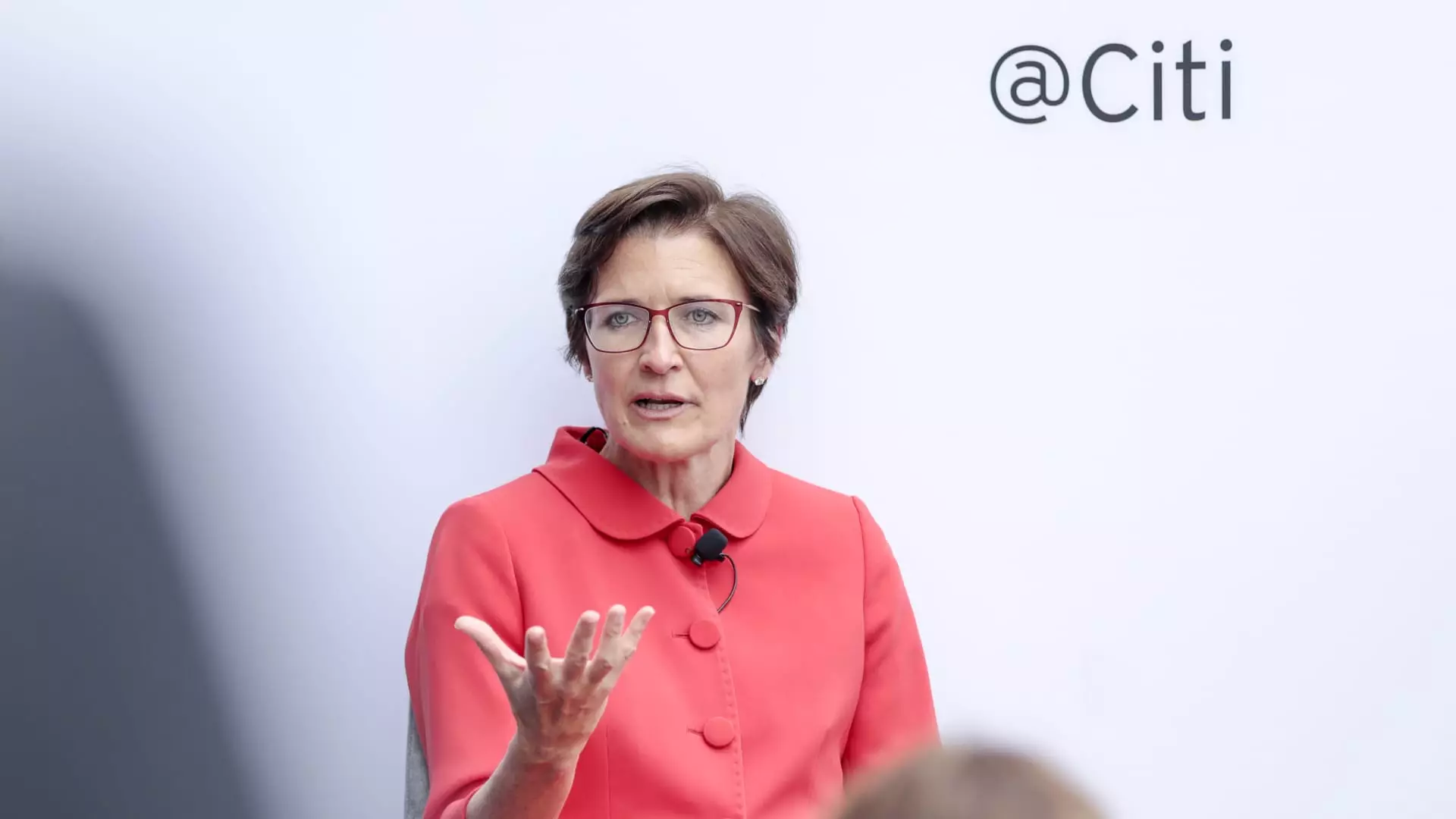On a brisk Wednesday morning before Wall Street’s opening while the financial sector buzzed with anticipation, Citigroup unveiled its fourth-quarter earnings report. The results were decidedly impressive, surpassing analysts’ expectations on both share earnings and overall revenue. The bank’s stock experienced an uptick of over 2% in premarket trading as investors reacted positively to the favorable earnings news. Reported earnings came in at $1.34 per share, outpacing analyst forecasts of $1.22. Furthermore, Citigroup’s total revenue for the quarter reached $19.58 billion, which also edged above the expected $19.49 billion. This performance reflects a marked turnaround in the firm’s financial health, showcasing the effectiveness of its strategic implementations.
Citigroup’s net income climbed to $2.86 billion in the fourth quarter, a notable recovery compared to a substantial net loss of $1.84 billion from the same quarter in the previous year. This stark contrast not only illustrates the bank’s resilience but also highlights the complexities inherent in year-over-year comparisons, particularly due to the significant charges incurred in the latter part of 2023. The resurgence in profitability is a testament to Citigroup’s concerted efforts to streamline operations and bolster its core businesses, helping to stabilize its bottom line.
The fourth quarter was marked by pronounced growth across various business segments, particularly in investment banking, which enjoyed a remarkable 35% year-on-year revenue increase. This surge raised overall banking revenue by 12%, and when accounting for loan hedges, this growth expanded to 27%. An impressive 36% year-over-year revenue increase in market operations exemplified the breadth of Citi’s recovery efforts. With fixed income markets revenue reaching $3.48 billion—well ahead of analyst projections—Citi capitalized on the robust market for issuing investment-grade corporate debt. Such performance underscores the effectiveness of Citi’s strategic positioning in the financial markets.
In addition to its investment banking success, Citigroup reported fruitful progress in its wealth and services sectors, with revenues climbing by 20% and 15% respectively, year-on-year. These gains reflect not just an uptick in client engagement but also the firm’s relentless focus on providing services that are tailored to evolving market conditions. CEO Jane Fraser emphasized the significance of 2024, indicating that the results are indicative of a strategy that is proving its worth by delivering stronger overall business performance.
As results were shared, anticipation built around the analyst call, where stakeholders sought insights into Fraser’s long-term turnaround strategy initiated since her appointment in March 2021. With a commitment to resizing operations and divesting some international units, Fraser’s vision is beginning to unravel in a positive direction. Furthermore, Citi’s stock demonstrated remarkable resilience this year, increasing by nearly 37% so far. Given these indications of a robust recovery and strategic alignment, the financial community may look favorably on Citigroup as it navigates the complexities of the global market in the coming fiscal year.

